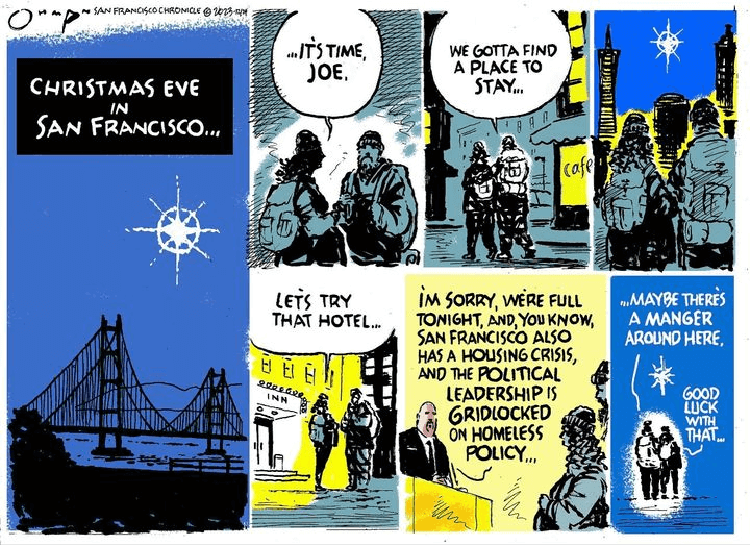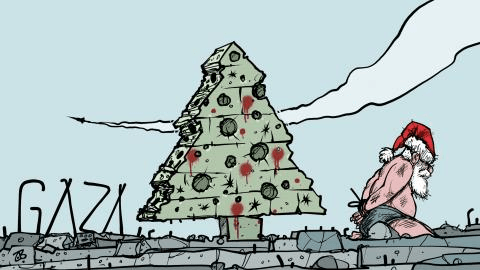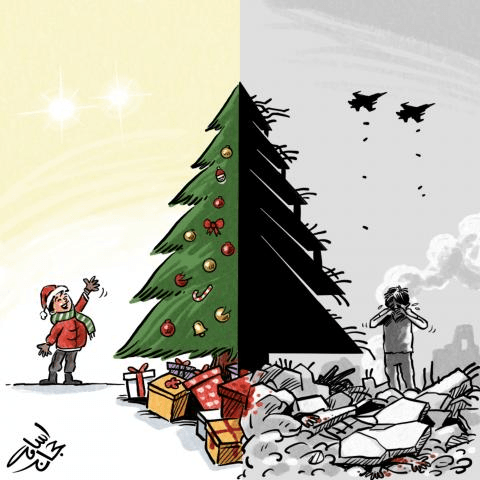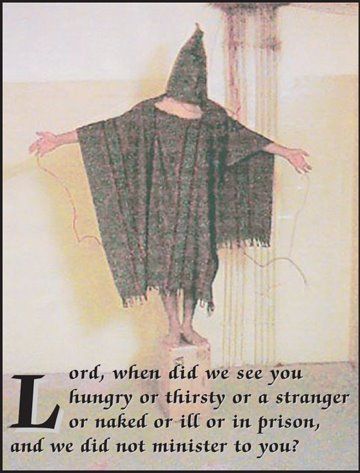CSotD: 366 days, not just 12
Skip to comments
Jack Ohman plays with the Nativity story to illustrate the plight of the poor and homeless in San Francisco. It’s nicely played, though, of course, he’s hardly the first cartoonist to make the comparison. But his multi-panel approach really pays off, adding detail and frustration to a common plaint.
One way to differentiate among these parallels to Luke is whether they describe — as Ohman does — an ongoing problem, or an immediate crisis, granted that conflict in the Holy Land is more an issue of ebbs and flows than of a specific moment.

In 2005, for instance, Austrian cartoonist Wolfgang Ammer commented on the wall erected by the Israeli government that constricted traffic between various West Bank communities, suggesting that it would have separated the Holy Family as it did Palestinian families, with the separated Magi perhaps representing its impact on commerce.
The current crisis in that part of the world has called forth even more bitter commentary on the season, as seen in this
Juxtaposition of the Day

Emad Hajjaj — Cartoon Movement

Osama Hajjaj — Cartoon Movement
I find it interesting that these Jordanian cartoonists (Hajjaj is a relatively common name there) each chose to cite the secular, rather than the religious, holiday in their cartoons. About eight percent of Jordanians are Christian, primarily Eastern Orthodox, while less than two percent of Israel is Christian, and I don’t know what Santa’s reach is in either country.
But I’d say that Emad Hajjaj is reaching a bit with his cartoon, suggesting that the war has halted Christmas celebrations, while Osama Hajjaj makes a more readily defended comparison between the joyous, comfortable West and the shattered children of Gaza. Note that his sharp division of the two purposely fails at the bottom, where colorful red packages morph into blood-stained rubble.
But what I find most challenging about today’s collection is that, while it’s hard not to be affected by the plight of Gaza, I don’t feel there’s a whole lot I can do about it beyond feeling pity.
Obviously, we’re got elections coming up and I can vote for the person most likely to do something positive about the war, but candidates have so much on their plates that it’s difficult to feel you’re making a difference on any one topic.
However, while I have no impact on San Francisco’s homeless issues, I can make a difference in my own community, and there aren’t many places in America where homelessness and hunger are not issues. As the man said, “Ye have the poor with you always, and, whensoever ye will, ye may do them good.”
That “whensoever ye will” makes Ohman’s cartoon more of a challenge, because this isn’t the only time of year when such things matter, and the burst of charity at Christmas brings us not to Luke’s nativity story nearly half so much as it does to the story of the Good Samaritan, whose decency was not inspired by a holiday but by a stranger in need, and to 1 John 4:20, “If a man say, I love God, and hateth his brother, he is a liar: for he that loveth not his brother whom he hath seen, how can he love God whom he hath not seen?”
And, of course …

Bearing in mind that the Good Samaritan never held himself out to be “one of us,” which was the point of the story. Ignoring those in need is the same as hating or mistreating them, in the eyes of that fellow whose birth you say you are celebrating.
And, by the way, you don’t have to believe in the divinity of Jesus any more than you have to believe in the divinity of Buddha or of Jane Addams or of Albert Schweitzer. A philosophy is as good as a religion, if it inspires you to give a damn when you should.
And no religion is of any value if it doesn’t.
It reminds me of a conversation I had with Tomas Cardinal O’Fiach during the Troubles in Ulster, and his frustration with people in the southern part of a nation the size of Indiana who did not respond to the suffering in the north.
“It’s not a thousand miles away,” he said. “It’s not Afghanistan or Iran or Iraq. We shouldn’t distance ourselves from any suffering, but, at least, it should be easier to distance ourselves from those than from something in Ireland. Yet they do try, even from something which I think Christian charity demands that we try to be helpful with.”
It’s not all a thousand miles away, and it’s not just happening one week out of the year. The food banks operate 365 days of the year — 366 in 2024 — and the homeless shelters, insufficient as they may be, will be open then as well.
If you’d like to volunteer at a soup kitchen, that’s great, but they’ll need help in March and August just as much as they do this week. It could be a birthday tradition, not just one at Thanksgiving and Christmas.
If nothing else, vote this November for those who can, and who will, help, and, if you want to do more for Gaza, for the Sudan, for our own hungry, for our own homeless, for our own pregnant and oppressed, for the suffering here and everywhere, please help increase the turnout of likeminded voters. Carry a clipboard, or just carry the message.
Maybe attend a rally or write to your senators and your representative and your local government officials.
Certainly, if your grocer supports the food bank, round up. Drop a jar of peanut butter in the collection bin at the door.
If the zoning board is considering some low-income housing, show up at the meeting, because those who oppose it surely will.
Let the holiday season be the high point of your efforts, not the only point.
Try to remember back when you were young and still believed, not in Santa Claus, but in yourself.

Comments 7
Comments are closed.